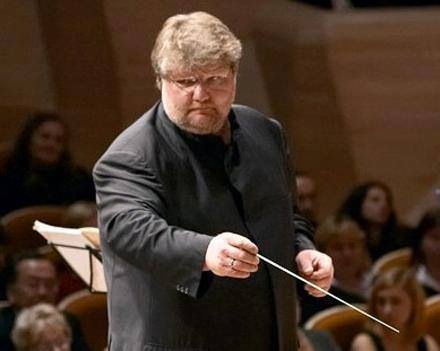Rachmaninoff fares best in uneven Jerusalem Symphony concert
The Jerusalem Symphony Orchestra came to the Broward Center Thursday night, with conductor Dmitry Yablonsky leading a program of well-worn 19th and 20th century Russian staples. Down to just three events this season in its Classical Series, the concert drew an audience that was less than half full. Scheduling the event the same night that the venerable Philadelphia Orchestra was making a rare South Florida appearance in Miami likely didn’t help at the box office.
For the first half of the program, those who decided to spend their evening elsewhere seemed wise, with sloppy ensemble playing that was more on the level of a third-tier orchestra.
The concert opened with the national anthems of the United States and Israel followed by a too-serious reading of Mikhail Glinka’s Ruslan and Ludmila Overture. A clarion trumpet solo introduced Tchaikovsy’s Polonaise from Eugene Onegin, but the rest of this short work was a letdown, the pace so stubborn that it was hard to envision a ballroom filled with festively dressed dancers.
At about fifteen minutes, Prokofiev’s Piano Concerto No. 1 is the shortest and most traditional of the five works he composed in the genre. Soloist Farhad Badalbeyli delivered a playful, energetic, somewhat jazzy performance, but the orchestra often got in the way of the Azerbaijani pianist’s virtuosity. Yablonsky was constantly struggling to keep the orchestra on the same page, their playing distracting from the soloist rather than partnering with him. As an encore, the pianist-composer offered The Ocean, his own showy solo piece, which concluded the first half on a positive note.
After the intermission came Rachmaninoff, and, as if by magic, the orchestra seemed transformed. Perhaps Rachmaninoff’s Symphony No. 2 is so bulletproof, a work of such melodic beauty that it can’t be ruined. But the notes still have to be played, and the Jerusalem Symphony’s lovely, restrained and, yes, cohesive, performance was surprising after such a desultory first half.
Even the Rachmaninoff got off to an unpromising start with the ensemble playing messy in the opening minutes. But the English horn solo early in the first movement signaled a turn for the better, and the brass gained in focus and power. The woodwinds, uniformly the orchestra’s strength all evening, were elegant, the lower strings deep and authoritative. The principal violin’s solos were remarkable for a folksiness that added pastoral elegance to Rachmaninoff’s lush, tightly woven tapestry.
Ultimately, the success of a performance of Rachmaninoff’s Second Symphony rests largely on the crowd-pleasing second and third movements. The former came across as beautiful without being too schmaltzy. The clarinet solo that opened the Adagio was lovely, light as air and blended beautifully with the ethereal upper strings. The final movement was appropriately rousing and energetic but well controlled by Yablonsky, who kept his forces under a tight grip.
Yablonsky loosened the reins for the second encore, an audience clap-along of Johann Strauss Sr.’s Radetzky March. The first encore was an arrangement of Naomi Shemer’s popular Israeli song, Jerusalem of Gold.
The Broward Center’s Classical Series concludes March 22 with pianist Emanuel Ax. browardcenter.org
Posted in Performances
Leave a Comment
Sat Feb 27, 2016
at 10:50 am
No Comments







